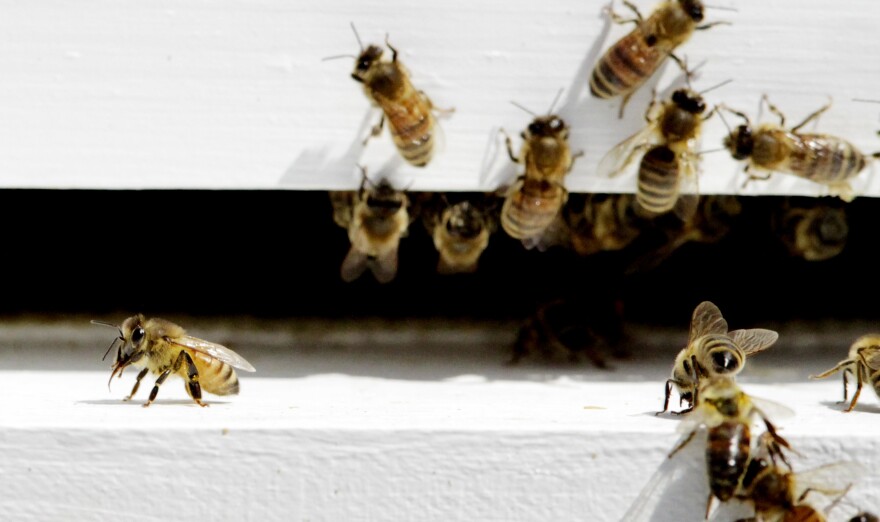Honey bees are struggling to pollinate and produce honey this year due to drastic shifts in climate, according to industry officials.
They said an abnormally rainy spring made it hard for bees to leave their hives for pollination. Now, the drought has hampered nectar production in most plants — which bees rely on for energy to make honey.
According to data from the National Weather Service, Maine saw rain nearly every weekend in May and June. But it stopped in July, and now over 80% of the state is in some degree of drought conditions.
Beth Goodwin heads the Maine State Beekeepers Association. She said in order to keep colonies energized, beekeepers are not harvesting as much honey.
"If those bees are more active, going out and looking because for forage, because it's warm... They're going to be expending more energy and then needing more fuel to keep them going," Goodwin said. "They are genetically predisposed to working intensely for a short period of time."
Goodwin said it's too early to tell how this year's total honey yield might be affected.
She said wild pollinators like butterflies, moths and hummingbirds will also have a tough go at finding nectar.



